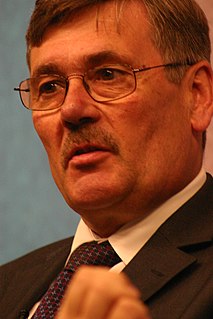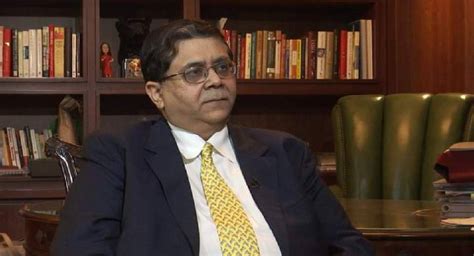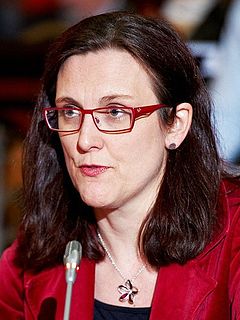A Quote by Khaled Hosseini
The country [Afghanistan] faces enormous problems. There is a violent insurgency hampering the rule of law and developmental efforts.
Quote Topics
Related Quotes
For good or for bad, India has rejected a more totalitarian approach to how it will deal with its social problems. We would starve but we would not give up our democracy and our love for our freedoms and to deal with these problems in an atmosphere of democracy and the rule of law without necessarily going, sort of resorting to civil disobedience or any kind of violent revolution.
I’ve chosen not to challenge the rule of law, because in our system there really is no intermediate step between a Supreme Court decision and violent revolution. When the Supreme Court makes a decision, no matter how strongly one disagrees with it, one faces a choice –are we, in John Adams’ phrase, a nation of laws, or is it a contest made on raw power?
For the overthrow of the bourgeoisie, the efforts of one country are sufficient - for this we have the testimony of the history of our revolution. For the definitive victory of Socialism, for the organization of Socialist production, the efforts of one country, especially of a peasant country like Russia, are insufficient - for that are required the efforts of the proletarians of several advanced countries.
In a free country, America, or India, and Japan, and many places, democracy country, free country, but still within the sort of rule of law, some injustice, some sort of problems, some discrimination, and also some sort of scandals or the corruptions. These things, you see, they are always in my mind, I think many people agree, lack of moral principle.
Many problems that confront us today are created by man, whether they are violent conflicts, destruction of the environment, poverty or hunger. These problems can be resolved thanks to human efforts by understanding that we are brother and sister and by developing this sense of closeness. We must cultivate a universal responsibility toward each other and extend it to the planet that we have to share.
We are deeply concerned about the situation in Russia with regards to human rights. There are several examples of this situation, such as the new law requiring NGOs to register as "foreign agents", the law banning homosexual "propaganda", problems with the rule of law and arbitrary judicial processes, and court rulings against the opposition.





































